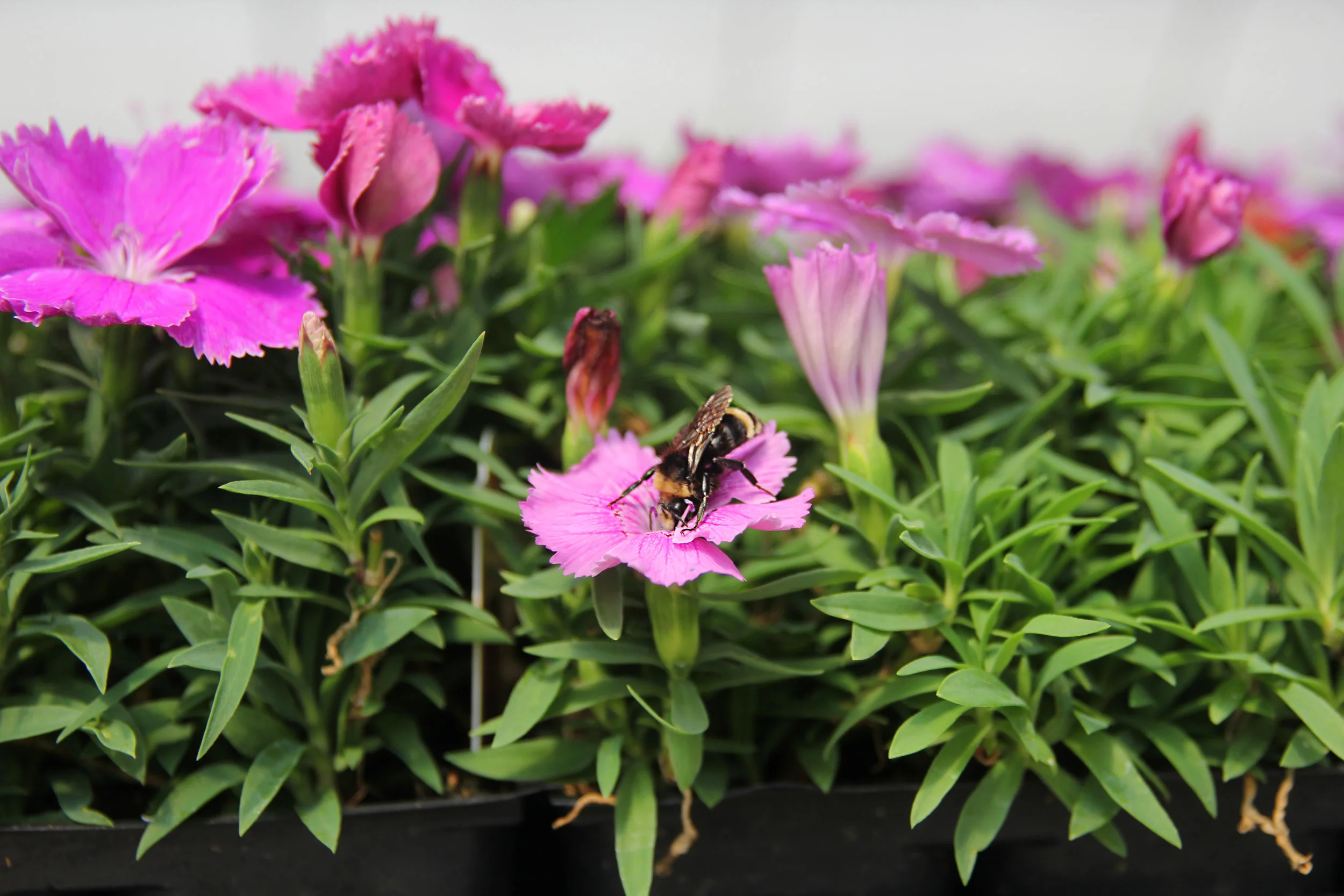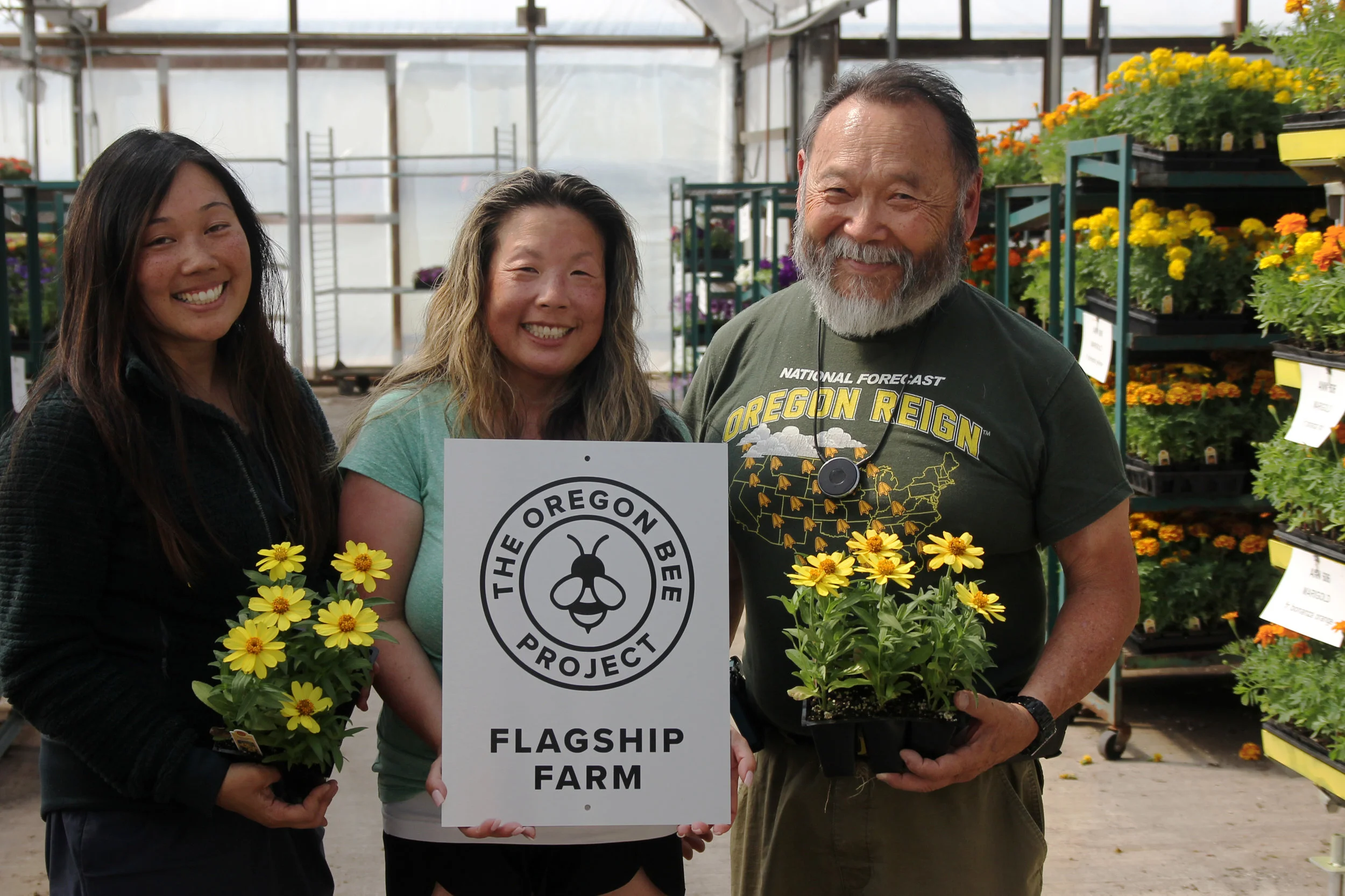Iwasaki bros., inc.
Hear more about Iwasaki Bros. on OSU’s weekly podcast PolliNation.
In 1916, B.Y. (Billy) Iwasaki started a dairy farm in Hillsboro, Oregon. Over the years, the farm changed focus, first to a row crop farm, then to covered greenhouses. Through these changes, Billy’s sons, George, Ike and Art Iwasaki, got involved in the business. Today, Iwasaki Bros. operates 629,050 square feet of covered greenhouses and grows annual and perennial bedding plants including Christmas greenery and poinsettias. Their trucks deliver from the Canadian border in the North to Brookings in the South; from the Pacific Coast in the West to Cour d’elene in the East.
With a commitment to quality and excellence, Iwasaki Bros. experiments with new ways to grow plants efficiently and effectively; trying out a variety of LED light systems and integrating robotics and automation into their process. “It’s like going to a buffet line and you’re either at the front or the back. We want to be at the front of the line,” says Jim Iwasaki.
Crops
Annuals, perennials, herbs, and vegetables
Farmers Markets/Retailers
Wholesale
Location
Hillsboro, Oregon
Established in
1916
Owned by
Jim Iwasaki and his daughters Theresa and Julie Iwasaki
“It takes a long time to grow, but it’s a really pretty flower.” – Jim Iwasaki
WHAT ARE THEY DOING FOR BEES?
Because of Iwasaki Bros.‘ main crop output, they are very familiar with bees. “We specialize in growing bedding annuals and perennials, so nearly everything we grow is attractive to some kind of pollinator,” says Kathleen Baughman, Operations Manager at Iwasaki Bros.. With over 275 different species of plants that attract bees, butterflies, and hummingbirds, Kathleen calls Iwasaki Bros. an “all-you-can-eat buffet for pollinators.”
To accommodate these pollinators, they are very selective about which chemicals they use and when. “Wherever possible, we use beneficial predators as our primary strategy to manage pests,” Kathleen adds. They scout their crops weekly to catch problems early so they only have to spray a hot spot as opposed to the whole crop. Plus, they maintain additional acreage of pasture, wetlands, and drainage swales that is filled with pollinator habitat including wild rose, dogwood, hawthorn, ninebark, and more.
Ornamental peppers come in stunning colors, but need bee pollination to set. Iwasaki Bros manage pests in their nurseries to protect bees, leading to incredibly gorgeous and full peppers.
According to Jim Iwasaki, caring for pollinators is a natural fit for his farm. “Historically, Iwasaki Bros. has taken lead positions in greenhouse technologies, LED, repurposed structures, and plant logistics,” he says. “Partnering with the Oregon Bee Project is consistent with our focus. It is important to be a steward for the environment.”
“Iwasaki Bros., Inc. is located in close proximity to Jackson Bottom Slough, which is an important ecosystem for migrating waterfowl. Much of our surface drainage makes its way toward this larger wetland habitat, so we take our stewardship role seriously.” – Kathleen Baughman
meet the farmers
Jim Iwasaki, Billy Iwasaki’s grandson, has been running Iwasaki Bros. along with his daughters Theresa and Julie Iwasaki since 1997. With Theresa and Julie carrying on the tradition of business excellence for Iwasaki Bros., 4 generations of the Iwasaki family will have run this farming operation over the span of more than 100 years.
The Iwasaki family.





